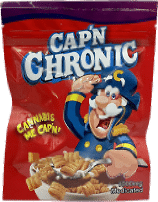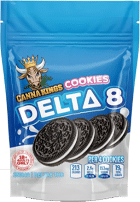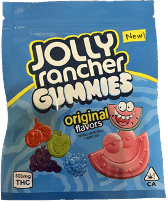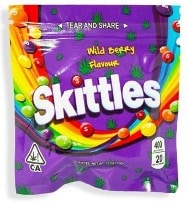Campaign Name: "PureSpectrum CBD: Elevate Your Wellness Naturally" Campaign Overview: Elevate your wellness naturally with our "PureSpectrum CBD" campaign. We're dedicated to delivering the highest quality, full-spectrum CBD products for a holistic approach to well-being. Campaign Elements: Branding:Logo: Design a campaign logo featuring a pure and...
HempTalk - Business Blogs and Press Releases
Hemp biochar is a type of biochar made from hemp plant material. Biochar is a form of charcoal produced through a process called pyrolysis, which involves heating biomass (in this case, hemp) in a low-oxygen environment. This process breaks down the organic material into a stable, carbon-rich substance that can be used for various agricultural and ...
Hemp fiber supplements are dietary supplements made from the fibrous parts of the hemp plant (Cannabis sativa). These supplements are rich in dietary fiber, particularly soluble and insoluble fiber, and they offer various potential health benefits. Here's what you need to know about hemp fiber supplements: 1. High Fiber Content: Hemp fiber suppleme...
Every five months Irvin Rosenfeld has gets a FedEx shipment, courtesy of the federal government, containing six metal canisters, each with 300 perfectly rolled joints of what today would be considered rather mediocre weed. But the quality of the government-issue reefer matters less than the fact that Uncle Sam has been supplying him with it regularly since 1982, when Rosenfeld won the right to smoke cannabis for reasons of medical necessity under the auspices of the federal government’s Compassionate Investigational New Drug (IND) program. Rosenfeld smokes cannabis every day to treat a rare and excruciatingly painful bone disease called multiple congenital cartilaginous exotosis.
Medicine in a Can
A total of 15 patients with different incurable ailments would enroll in the Compassionate IND Program to study cannabis before it was officially shut down in 1992. As one of the last living IND participants, Rosenfeld remains a forthright and energetic medical cannabis advocate, a role he takes very seriously. His personal story is compelling. He has suffered with extreme pain for most of his life. At age 10, x-rays revealed more than 200 tumors sprouting from bones in his arms and legs. He would undergo a dozen surgeries and consume a steady diet of prescription narcotics and other pharmaceuticals.
When he first smoked marijuana as a teenager at a social gathering, it was a revelation. Before long he realized that if he smoked cannabis every couple of hours, his pain eased and he didn’t have to rely as much on doctor-prescribed muscle relaxants, opiates, and benzos to get by. Although he felt no euphoric effects from cannabis, the herb somehow kept his disease in check, inhibiting tumor growth and helping him live a decent life. A walking, talking refutation of the lazy stoner myth, he went to college, played sports, married his childhood sweetheart Debbie, and became a successful stockbroker.
There’s no doubt that cannabis helps Rosenfeld’s condition, but it’s not a cure. Though he has learned to live with his pain, at times its relentlessness makes him feel depressed, trapped in a lonely prison from which there’s no escape. At least that’s how it felt until one day in 2020, when Rosenfeld’s pain management specialist, Dr. Michele Weiner, mentioned a potential jailbreak: ketamine.
Dissociation Nation
Ketamine, an FDA-approved “dissociative anesthetic,” has been around since 1962 when it was first synthesized by chemist Calvin Stevens. Employed initially as a tranquilizer in veterinary medicine, the drug was widely utilized during the Vietnam War for treating wounded troops. Ketamine kept injured soldiers conscious but cognitively disconnected from their pain, all while maintaining their vital functions.

Hemp is a nutritious and protein-rich addition to smoothies that can enhance both the flavor and nutritional value of your drink. Here's how you can incorporate hemp into your smoothies: 1. Hemp Seeds (Hemp Hearts): Hemp seeds are small, nutty-tasting seeds packed with protein, omega-3 fatty acids, and other essential nutrients.Add 1 to 2 tablespoo...
Hemp (Cannabis sativa) has shown promise as a phytoremediation tool for cleaning up soil contaminated with heavy metals. Phytoremediation is a process in which plants are used to extract, stabilize, or reduce the concentration of pollutants in the soil. Here's how hemp can be used for heavy metal phytoremediation: Deep Root System: Hemp has an exte...
Hemp seed oil is a nutritious and versatile oil that can be used in cooking to add flavor and health benefits to a variety of dishes. Here's how you can use hemp seed oil in your cooking: 1. Salad Dressings: Hemp seed oil can be used as a base for homemade salad dressings. Its nutty and earthy flavor complements a wide range of salad ingredients. C...
Hemp-based disposable plates are an environmentally friendly alternative to traditional disposable plates made from materials like plastic or paper. They are part of the broader movement toward sustainable and biodegradable products. Here are some key points about hemp disposable plates: 1. Material: Hemp disposable plates are typically made from a...
Hemp fiberboard, often referred to as "hempboard" or "hemp fiberboard," is a sustainable and eco-friendly alternative to traditional wood-based fiberboard or medium-density fiberboard (MDF). It is made using the fibers of the hemp plant, which are blended with other natural materials and adhesives to create a versatile building material. Here's an ...
Hemp can be an effective bait for fishing, particularly for species like carp, chub, and bream. Hemp seeds are the most commonly used part of the hemp plant for fishing bait. Here's how you can prepare and use hemp as bait: Ingredients: Hemp seedsWaterA saucepanA bait box or container Steps: Soak the Hemp Seeds: Start by placing the desired amount ...
Hemp can be used in the production of musical instruments, particularly for certain components and accessories. Here are a few ways in which hemp can be incorporated into musical instruments: Guitar Strings: Hemp fibers can be used to make guitar strings. Hemp strings are known for their warm and mellow tone. They are also favored by some musicians...
Hemp-based inks are a sustainable and environmentally friendly alternative to traditional petroleum-based inks commonly used in printing. Here are some key points about hemp inks: 1. Eco-Friendly: Hemp inks are considered eco-friendly because they are made from renewable hemp resources. Hemp is a fast-growing plant that requires fewer pesticides an...
Hemp (Cannabis sativa) is a plant known for its complex phytochemistry, which refers to the wide variety of chemical compounds it produces. Some of the key phytochemicals found in hemp include: Cannabinoids: Hemp is particularly famous for its cannabinoids, which are unique compounds found in the Cannabis genus. The two most well-known cannabinoids...
Hemp is a rich source of healthy fats, particularly omega-3 and omega-6 fatty acids. These essential fatty acids are crucial for maintaining overall health, and they offer various benefits when included in your diet. Here's a closer look at hemp's healthy fats: 1. Omega-3 Fatty Acids: Hemp seeds contain a type of omega-3 fatty acid called alpha-lin...
Earlier this year, the Food & Drug Administration disclosed that it would not regulate non-pharmaceutical CBD products, thereby putting the onus on Congress to devise an appropriate regulatory framework for cannabidiol and other hemp-derived cannabinoids. Solicited by a formal Congressional Request for Information (RFI) on ideas for how to regulate hemp-derived CBD, public feedback included a diverse range of perspectives from businesses, trade associations, and other stakeholders. But today’s “hemp” market has moved way beyond CBD, as noted by several commentators who expressed concerns about the unregulated proliferation of high-dose THC consumables and novel synthetic intoxicants thanks to loopholes in the 2018 Farm Bill, which is up for revision and renewal in the coming months. What follows are comments recently submitted by Tiffany Devitt, a longtime Project CBD supporter, in response to the Congressional RFI on a potential regulatory pathway for hemp-derived CBD. A leading California cannabis industry policy influencer, Devitt is currently Director of Regulatory Affairs at CannaCraft & March and Ash.
Current Market Dynamics
Loopholes in the 2018 Farm Bill
The 2018 Farm Bill defines “hemp” as “the plant Cannabis sativa L. and any part of that plant, including the seeds thereof and all derivatives, extracts, cannabinoids, isomers, acids, salts, and salts of isomers, whether growing or not, with a delta-9 tetrahydrocannabinol concentration of not more than 0.3 percent on a dry weight basis.”
Within that definition, are two critical phrases: “all derivatives” and “whether growing or not.”
“All derivatives” is currently being misinterpreted to encompass any compound that can theoretically be chemically synthesized from CBD, even wholly novel compounds not found in the plant in commercially meaningful quantities (if at all).“Whether growing or not” is being misconstrued to mean that the 0.3 percent THC limit applies to the plant biomass and the final product, resulting in THC levels in consumer products labeled as “hemp” that substantially exceed THC limits set in state-regulated cannabis markets.Lastly, the omission of THCA, a natural compound that converts to THC when heated, is causing further confusion.Collectively, this language has fostered a regulatory gap that companies are taking advantage of to sell highly intoxicating products, colloquially and misleadingly referred to in the national unregulated hemp marketplace as “legal cannabis.”1
The “Hemp” Market Has Moved Way Past CBD
In the federal discussion about hemp, “hemp” and “CBD” are often conflated. The reality is that the commercial market has largely shifted away from non-intoxicating CBD wellness products to highly intoxicating recreational products. Pseudo-hemp companies with brand names like Fuked Up2 and Clusterf*ck3 make no pretense of selling nutritional supplements. Instead, they market THC-like products that are far stronger than anything found in state-regulated cannabis markets, where the maximum dose of THC per serving is commonly capped at five to 10 milligrams.4 In the unregulated “hemp” market, brands like Chapo Extrax sell products with hundreds of milligrams of synthetic THC per serving.5 The so-called “hemp” market is no longer predominantly a wellness market. It is, in the words of Chapo Extrax, “the newest drug cartel in town.”6





CBD (cannabidiol) beverages are a popular category of CBD products designed for convenient and enjoyable consumption. These beverages contain CBD as one of their main ingredients and offer a refreshing way to incorporate CBD into your daily routine. Here are some common types of CBD beverages: CBD Water: CBD-infused water is one of the simplest for...
Hemp can be used as a source of natural dye for textiles and paper, offering an eco-friendly alternative to synthetic dyes. Hemp dye can be made from various parts of the hemp plant, including the leaves, stems, and seeds, depending on the color and properties desired. Here's an overview of how hemp can be used as a natural dye: Hemp Parts Used for...
Hemp has been recognized for its potential benefits in improving soil health and quality. It can play a valuable role in sustainable agriculture and soil remediation. Here are some ways in which hemp can positively impact soil: Phytoremediation: Hemp is known for its ability to absorb and accumulate contaminants from the soil, a process known as ph...
Hemp biofilters, also known as "phytofiltration systems," utilize hemp plants to help remediate or purify contaminated soil and water by absorbing, accumulating, and sometimes transforming pollutants. This eco-friendly method takes advantage of hemp's natural ability to extract harmful substances from the environment, making it a potentially valuab...
CBD (cannabidiol) has gained attention for its potential therapeutic effects in individuals with Parkinson's disease, a neurodegenerative disorder that primarily affects movement. While research is still ongoing and more evidence is needed, some studies have explored the use of CBD for managing certain symptoms associated with Parkinson's disease. ...

